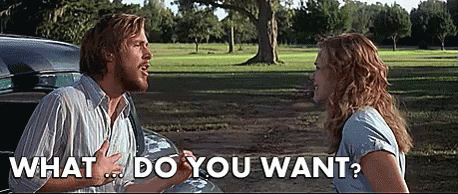Call to Action
Why it matters.
June 19, 2023
If you had one shot, or one opportunity
To seize everything you ever wanted
One moment
Would you capture it or just let it slip?
Yo
― Eminem
Many creators miss the chance to ask for what they want when the opportunity arises. If you made something I like, I want to know about you. If you did something helpful and saved me a lot of time, I want to know in which ways I can help you back. I will feel thankful and elated, so this is your chance. Let me ask you this: what do you want?

A call to action, or CTA, is a phrase that tries to get you to do something, like the YouTubers’ “please like and subscribe”. Good marketers are aware of its importance. The hallmark of good copy is to stir up emotion and then spring you to action with a CTA. If you don’t know what you want your customers to do, you are not likely to get it.
Some people believe that asking strangers to do something for them is cheap. Most strangers don’t mind at all if asked tactfully, though. You have given me something I wanted, for free, so it’s OK for you to ask for something back, especially when it’s something easy to do and easy to refuse. Still, some creators can feel a terrible sense of shame when they have to use a CTA. Even something as simple as innocuous as asking for a follow is too much for them.
There are 4 great reasons to always include a CTA:
It makes the creator and consumer even
Reciprocity is a powerful force. Just ask the Hare Krishna, who give you a flower at the airport and then expect you to join them. Hey, it worked on George Harrison.
When you give me something valuable, even if it’s free for you, there’s a chance I want to help you back. When we are given something valuable for free, we feel in debt, so asking for something in return is a great way to help even out the scale.
But what if there’s nothing the creator wants? That’s impossible. At a minimum, they want their work to be spread and consumed. Otherwise, what’s the point of putting it out there?
It provides clarification on the creator’s motives
So, you’re giving me this value for free. What’s in it for you? What are your interests and how are you biased? I want you to have an ulterior motive and I want to know what it is so I can adjust my expectations.
For example, if you are a YouTuber supported by Patreons, I find it more likely that you provide fair coverage of an oil spill than if your sponsor is BP.
It makes the creator more likely to succeed
People are more likely to help you if you make it easy for them. Want money for a startup? Ask for it. Want clients? Tell them about your services and how much they cost. Want, god-forbid, a job? Tell employers what you are good at and open to do. On the internet, you never know who is on the other side.
It forces the creator to clarify goals
To know what to ask for, you have to know what you want (see GIF above). So you have to define and prioritize goals, and that’s an amazing side-effect.